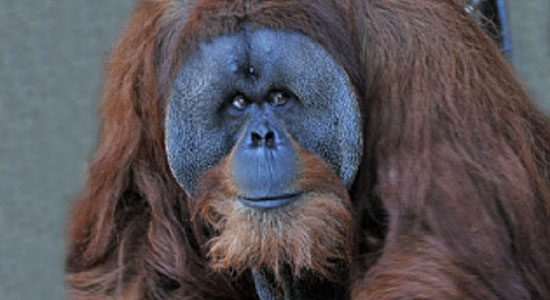For months, Torontonians have been rolling up their sleeves to get the COVID-19 vaccines, and now it looks like some of the city’s animals could be getting the shot, too.
Last week, the Toronto Zoo announced it is awaiting Canadian government approval to start using the same vaccine U.S. zoos have been using to vaccinate their animals.
There’s no word on when the use of vaccines on animals will be approved in Canada. The government’s official website currently states, “There is no evidence that vaccinating animals with vaccines for other coronaviruses will protect against COVID-19.”
Toronto Zoo CEO, Dolf DeJong, told the Toronto Observer the zoo has identified about 140 animals in care that would be eligible to receive the vaccine. The zoo plans to vaccinate all primates, felines, swine, bats, and mustelidae – a family of carnivorous animals including weasels, ferrets, wolverines, badgers, and others.
“I’m very concerned to make sure our primates are close to the top of the list because of their proximity to us [humans] genetically,” DeJong said.
Primate DNA is roughly 96 per cent identical to humans. Primates like chimpanzees and orangutans are at risk of contracting respiratory illnesses just like people are. Therefore, COVID-19 poses a threat to the animals.
The Toronto Zoo is currently home to Puppe, who, at 54 years old is the oldest orangutan in North America, and Sekali, a 29-year-old pregnant orangutan.
So far, there have been no positive COVID-19 cases in the animal residents of the Toronto Zoo.
“We’re really proud of our team of staff who have been very diligent about their PPE and distancing,” DeJong said. “But again, it’s essential we have this added level of protection for animals.”
The zoo currently has a mandatory vaccination policy for all staff, contractors, volunteers, and eligible visitors.
After the zoo announced the plan to vaccinate some of their animals, confusion and complaints about the initiative arose on social media platforms like Twitter.
Many people shared concerns like the lack of vaccine access in developing countries. However, the animal vaccines are specially manufactured for them and are not appropriate for humans.
“It’s not like we’re taking a sample of AstraZeneca and popping that over to an animal,” DeJong said.
Zoos in the U.S. have been vaccinating their eligible animals over the past few months using an experimental vaccine made by Zoetis, the world’s largest producer of medicine and vaccines for animals.
The company donated 11,000 doses to American zoos after the U.S. Department of Agriculture approved the vaccine for experimental use.

